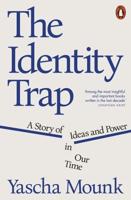Publisher's Synopsis
Now the present movement is, before all, political and revolutionary. The philanthropic and experimental forms of socialism, which played a conspicuous role before 1848, perished then in the wreck of the Revolution, and have never risen to life again. The old schools have dispersed. Their doctrines, their works, their very hopes have gone. The theories of man's entire dependence on circumstances, of the rehabilitation of the flesh, of the passional attraction, once in everybody's mouth, have sunk into oblivion. The communities of Owenites, St. Simonians, Fourierists, Icarians, which multiplied for a time on both sides of the Atlantic, are extinct. The socialists of the present day have discarded all belief in the possibility of effecting any social regeneration except by means of political authority, and the first object of their endeavours is therefore the conquest of the powers of the State. There are some exceptions, but these are very unimportant. The communistic societies of the United States, for instance, are mostly organizations of eccentric religious sects which have no part or influence in the life of the century. The Colinsian Collectivists, followers of the Belgian socialist Colins, are a mere handful; and the Familistere of Guise in France-a remarkable institution, founded since 1848 by an old disciple of Fourier, though not on Fourier's plan-stands quite alone, and has no imitators. Non-political socialism may accordingly be said to have practically disappeared. Not only so, but out of the several sorts and varieties of political socialism, only one has revived in any strength, and that is the extremest and most revolutionary. It is the democratic communism of the Young Hegelians, and it scouts the very suggestion of State-help, and will content itself with nothing short of State-transformation. Schemes such as were popular and noisy thirty years ago-schemes, involving indeed organic changes, but organic changes of only a partial character-have gone to their rest. Louis Blanc, for example, was then a name of some power; but, remarkably enough, though Louis Blanc was but the other year buried with great honour, his Organization of Labour seems to be as completely forgotten as the Circulus of Leroux. M. G. de Molinari writes an interesting account of the debates that took place in the working men's clubs of Paris in the year 1868-9-the first year they were granted liberty of meeting after the establishment of the Second Empire-and he states that while Fourier and Cabet were still quoted by old disciples, though without any idea of their systems being of practical moment, Louis Blanc's name was not even mentioned. Proudhon's gospel of a State bank of mutual credit for furnishing labourers with capital, by issuing inconvertible notes without money and without price, has still a sprinkling of faithful believers, who call themselves Mutualists; but they are extremely few, and, as a rule, the socialists of France at the present day, like those of Germany, put their faith in iron rather than paper. What they want is a democracy of labour, to use one of their own phrases-that is, a State in which power and property shall be based on labour; where citizenship shall depend on a labour qualification, instead of a qualification of birth or of property; where there shall be no citizen who enjoys without labouring, and no citizen who labours without enjoying; where every one who is able to work shall have employment, and every one who has wrought shall retain the whole produce of his labour; and where accordingly, as the indispensable prerequisite of the whole scheme, the land of the country and all other instruments of production shall be made the joint property of the community, and the conduct of all industrial operations be placed under the direct administration of the State. Furthermore, all this is contended for as a matter of simple right and justice to the labouring classes










